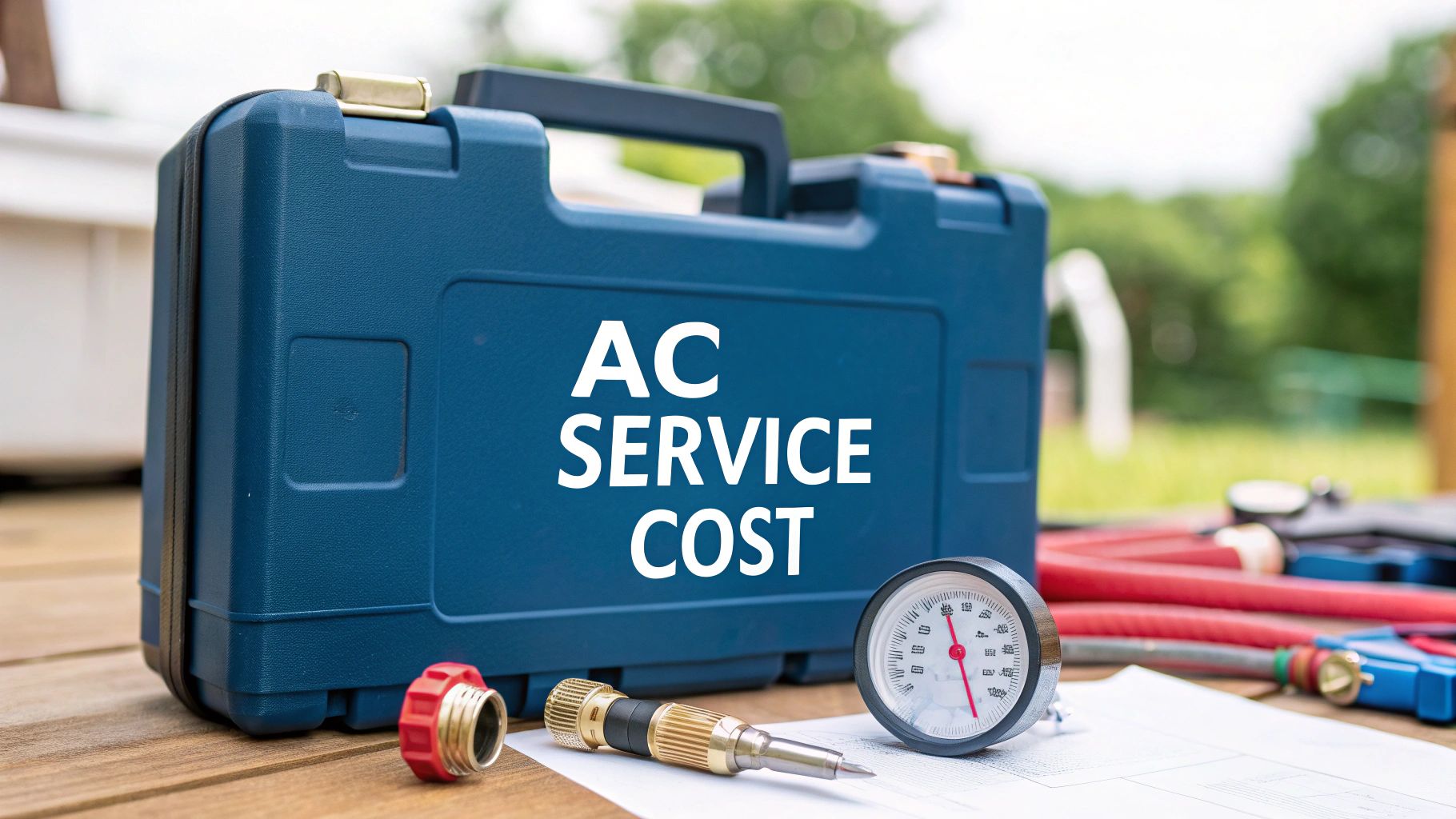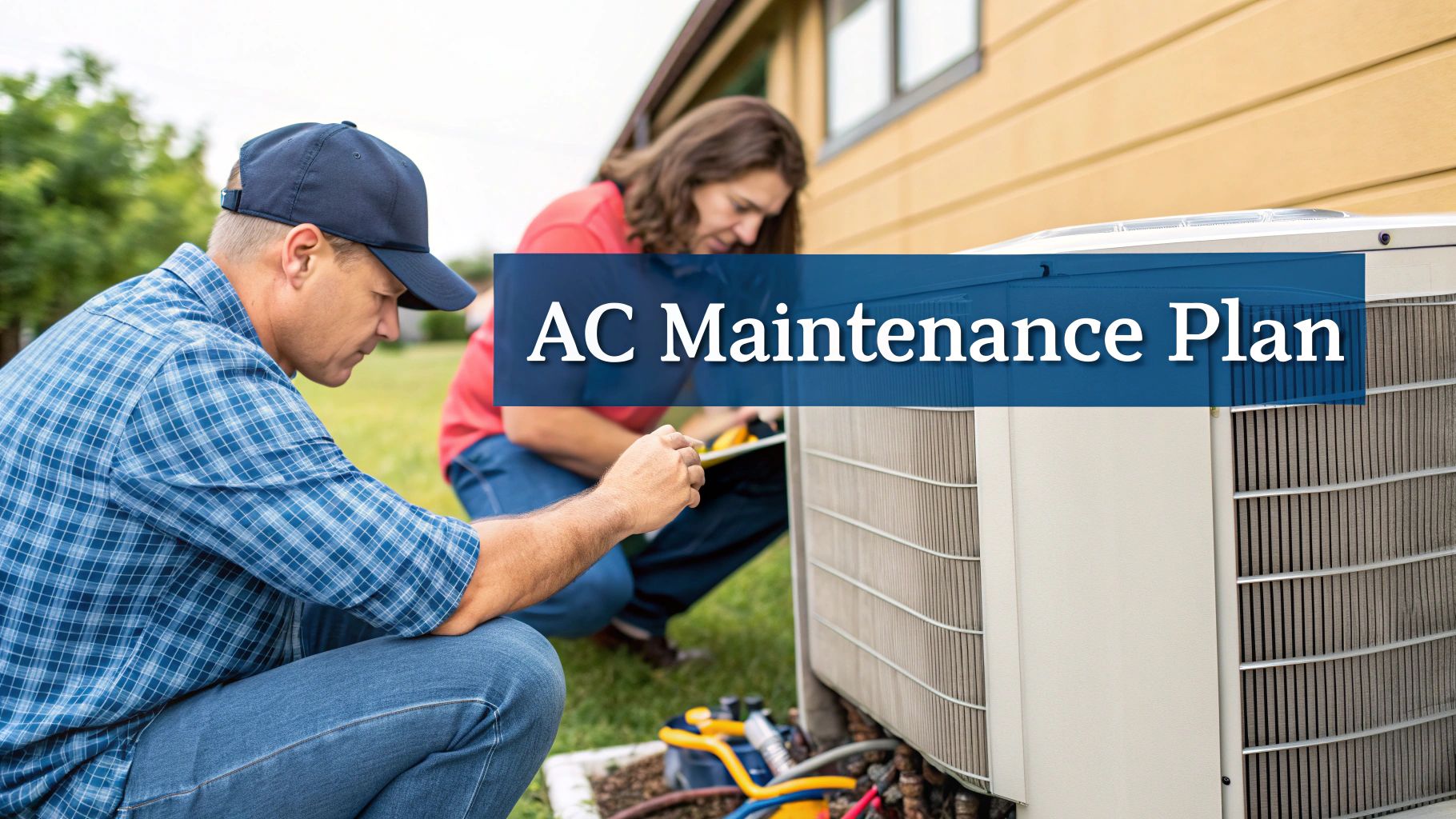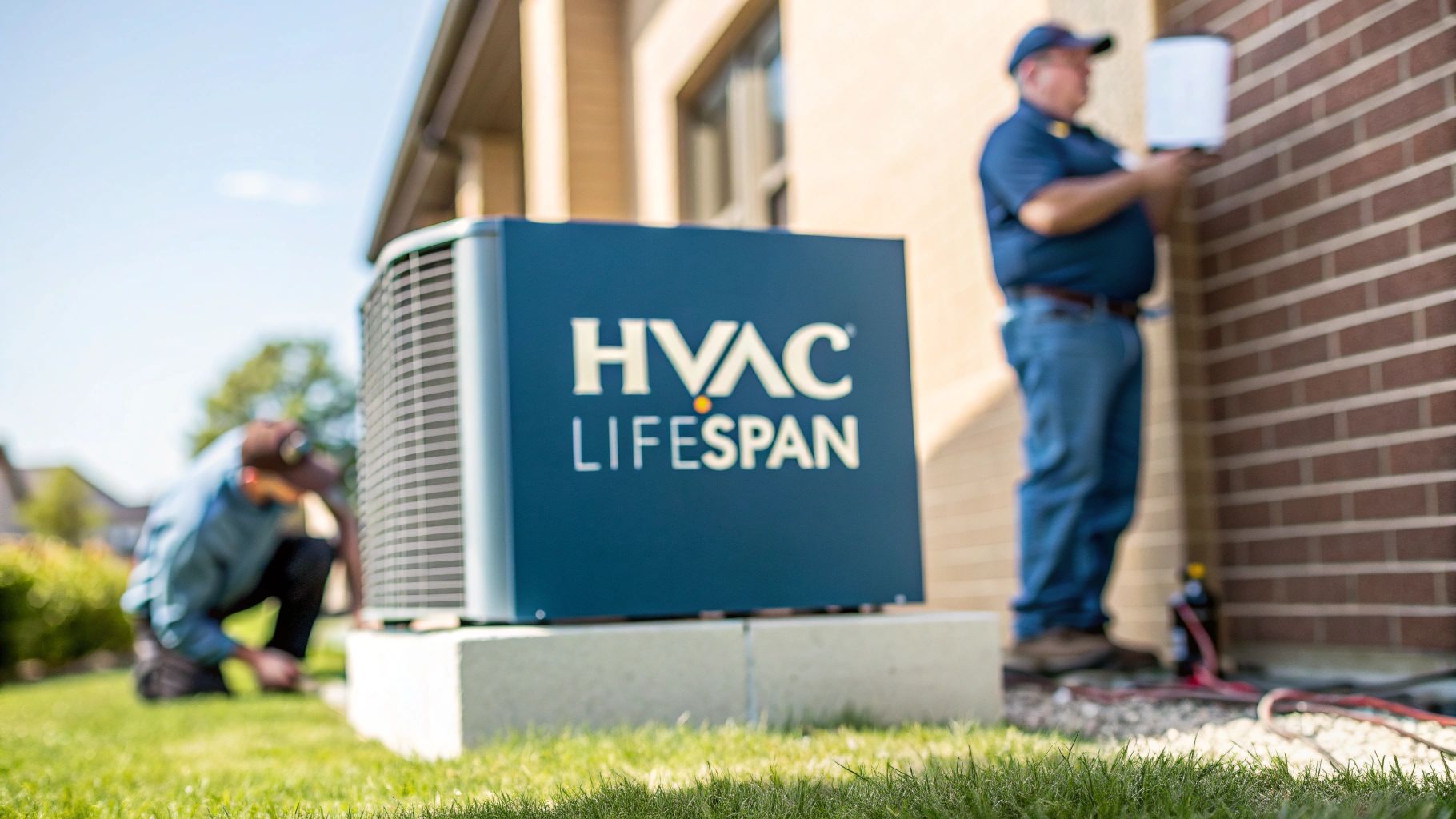When your air conditioner starts acting up, or it's just that time of year again, the first thing on your mind is probably, "How much is this going to cost me?" For a standard AC service or tune-up, you can generally expect to pay somewhere between $175 and $350.
Most folks find their bill lands right around $250. Think of this as preventative medicine for your cooling system—a small investment to keep it humming along nicely and avoid those dreaded summer breakdowns.
Breaking Down the Average AC Service Cost
An AC tune-up is a lot like getting an oil change for your car. It’s not about fixing something that’s broken, but about preventing big, expensive problems down the road. That national average gives you a good ballpark figure, but what you ultimately pay depends on what the technician discovers during the visit.
A basic check-up with a filter swap will naturally be on the lower end of the scale. But if the job involves a deep cleaning of the coils or, say, topping off the refrigerant, the price will start to climb.
The good news is that these maintenance costs have been pretty steady. That average price of $250 per visit really reflects the value you get back in better performance, lower energy bills, and a longer life for your unit. If you want to dig deeper into the numbers, HomeAdvisor has some great data on maintenance costs.
The Bottom Line: A standard AC service is all about being proactive. You're paying for a skilled technician's time and expertise to inspect, clean, and fine-tune your system so it runs at its absolute best.
Knowing what that price tag actually covers is key. To give you a clearer picture and help you budget, here’s a quick breakdown of what you can expect to pay for different types of AC services.
Typical AC Service Costs at a Glance
This table sums up the most common AC maintenance jobs and their typical price ranges.
| Service Type | Average Cost Range | What It Includes |
|---|---|---|
| Basic AC Tune-Up | $175 – $250 | A thorough inspection, filter change, thermostat check, and flushing the drain line. |
| Coil Cleaning | $200 – $400 | A deep, detailed cleaning of both the indoor and outdoor coils to boost efficiency. |
| Refrigerant Top-Off | $250 – $600+ | Checking for leaks and adding the correct amount of refrigerant (cost depends heavily on the type). |
As you can see, a simple tune-up is quite affordable, while more involved tasks like handling refrigerant will cost more. Always ask for a clear breakdown of services before the work begins.
What Really Determines Your Final AC Service Bill
Have you ever peeked at a friend’s AC tune-up cost and thought, “How did they manage that price?” It all boils down to details hidden in your home and cooling gear.
Much like taking a car to the shop, swapping oil on a fresh sedan runs you less than fixing a classic roadster. Your AC works the same: its make, age and quirks affect labor, parts and time.
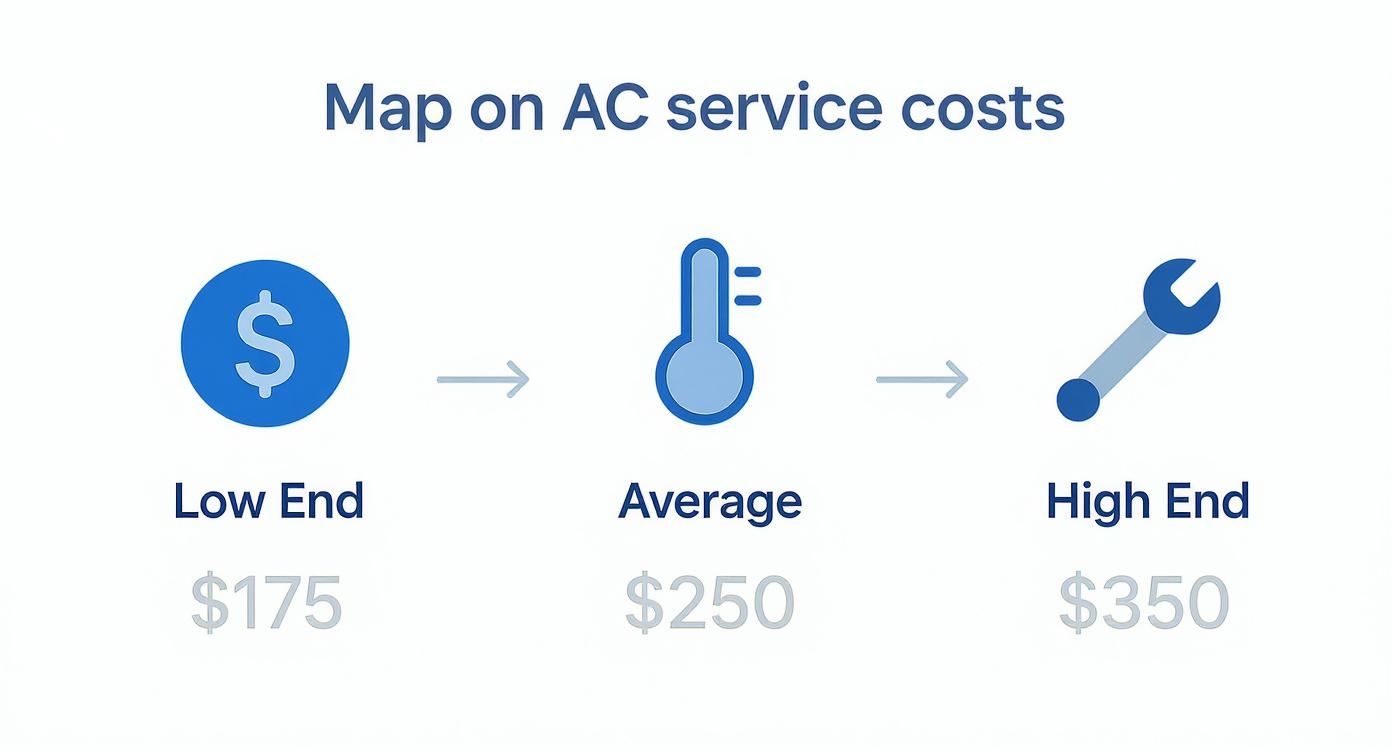
According to that chart, most homeowners see roughly $250 on their bill. Yet even small tweaks can push the total higher or lower.
Key Factors Influencing Your Bill
First, consider your AC’s type and age. A modern ductless system often needs basic checks. In contrast, an older central unit might require extra diagnostics and hard-to-find parts.
Next, the unit’s condition comes into play. A filter clogged with months of debris or coils caked in grime adds cleaning steps. Want to see how one procedure affects the bottom line? Check out the cost of cleaning evaporator coils.
Then, think about accessibility. If a unit sits in a tight attic or behind dense shrubs, technicians spend extra minutes—and sometimes special gear—to work safely.
How Different Home Services Compare
It can help to compare AC service with other household tasks. Cleaning solar panels, for instance, hinges on similar variables. In fact, factors influencing solar panel cleaning service costs underline how size, condition and reach affect that bill too.
Three Essentials That Set Your Bill
- System Type & Age: Old, central systems usually cost more time and parts than new, mini-splits.
- Unit Condition: Years of neglect mean deeper cleanings and possibly fresh filters or coils.
- Accessibility: Challenging locations add labor time and safety considerations.
With these points in mind, your next AC estimate will feel a lot less mysterious. You’ll know exactly what drives that bottom line.
Understanding Tune-Ups vs. Emergency Repairs
When you're trying to figure out how much air conditioner service costs, it's easy to get confused. The most important thing to understand is the massive difference between a planned tune-up and a frantic emergency repair call. Mixing them up is a recipe for sticker shock.
Think of it this way: an AC tune-up is like getting an oil change for your car. You schedule it ahead of time to keep things running smoothly and catch small problems before they become big, expensive ones. It's all about prevention.
An emergency repair? That’s like your car breaking down on the side of the highway. It’s unexpected, stressful, and the only goal is to fix what’s broken right now so you can get back on the road—or in this case, get your cool air back.
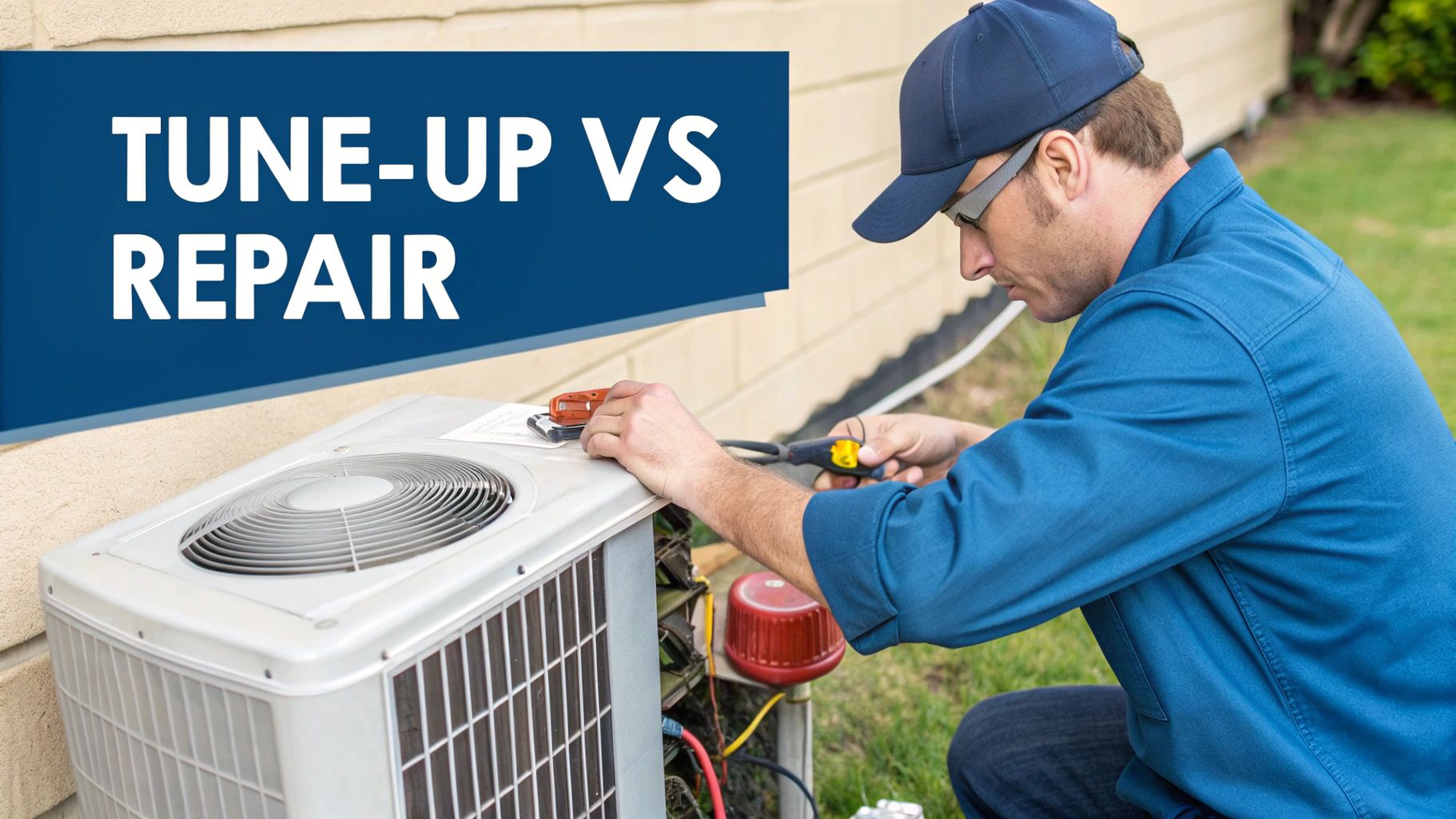
Tune-Up vs. Repair Cost Breakdown
Because a tune-up is a standard, scheduled service done during normal business hours, the cost is pretty predictable and much lower. Emergency repairs are a different beast altogether. They often come with after-hours fees, the added cost of parts, and more time-consuming diagnostic work, all of which sends the price way up.
If you find yourself in that tough spot, you can learn more about what to expect from a 24-hour air conditioning repair service.
A proactive tune-up is an investment in preventing costly breakdowns. A reactive repair is the often-expensive consequence of a system failure.
To really see the difference, it helps to put the two services side-by-side.
AC Tune-Up vs. AC Repair: A Cost Comparison
This table breaks down exactly what you're paying for in each scenario.
| Aspect | AC Tune-Up (Maintenance) | AC Repair (Fixing a Problem) |
|---|---|---|
| Purpose | Preventative care and efficiency optimization. | Reactive fix for a specific malfunction. |
| Timing | Scheduled in advance, typically off-season. | Urgent, often requires immediate or after-hours service. |
| Typical Cost | $175 – $350 | $350 – $1,600+ (Varies widely based on the part) |
| Scope | Comprehensive system check, cleaning, and calibration. | Diagnosis and replacement of a failed component. |
As you can see, investing a small amount in a tune-up can save you from a much larger, unexpected repair bill down the line. It's the classic "ounce of prevention is worth a pound of cure."
How Your Location and the Season Impact Pricing
Ever notice how the price of almost anything can change depending on where you are? The same goes for AC service. Where you live and what time of year it is play a huge role in the final bill.
Think about it: the cost of living in a major city is much higher than in a small town. That reality trickles down to everything, including what an HVAC company has to pay its technicians and what it costs to run their business. So, a basic tune-up in a bustling urban area will almost always cost more than the same job in a quieter, rural community.

But it's not just about your zip code. The calendar is just as important in figuring out how much your air conditioner service will cost. It all comes down to simple supply and demand.
Trying to book an AC tune-up during the first major heatwave of summer is like trying to buy a last-minute plane ticket for a holiday weekend. High demand means higher prices and longer waits.
Smart Scheduling Saves Money
So, how do you beat the rush and get a better deal? It's easy: schedule your service during the off-season. HVAC technicians are slammed during the summer heat and the winter cold.
That leaves a couple of sweet spots for homeowners looking to save.
- Early Spring: Get your system checked out before the first heatwave hits. Technicians have more open slots in their schedules.
- Mid-Fall: Once the cooling season is over but before the furnace needs to kick on is another great time.
Booking during these quieter periods often means you’ll snag a lower price. More than that, you get the peace of mind knowing your AC is ready to go long before you actually need it. It's a win-win.
Why Regular AC Maintenance Is a Smart Investment
Thinking about how much air conditioner service costs can feel like just another bill to pay. But it's much better to see it as a financial strategy—one that saves you a surprising amount of money down the road.
A well-maintained AC is an efficient AC. Think of it like a car that's just had a tune-up; it runs smoother and uses less gas. A clean and properly calibrated air conditioner works the same way, using less electricity to cool your home and shaving real money off your monthly energy bills.
The True Cost of Skipping Service
Besides the immediate savings on your utility bills, regular service is the best way to avoid a system meltdown. A full AC replacement is a huge expense, easily running into thousands of dollars. Sticking to a maintenance schedule keeps your unit running longer, pushing that massive replacement cost far into the future.
These check-ups also find the little things before they turn into disasters. A technician can spot a frayed wire or a clogged drain line—minor fixes that cost next to nothing compared to a fried compressor or serious water damage.
Forgoing an affordable annual tune-up is one of the costliest gambles a homeowner can make. The potential repair bills far outweigh the price of preventative care.
Every year, Americans spend roughly $14 billion on HVAC repairs. The simple truth is that consistent maintenance can slash your energy bills by up to 20% just by keeping your system in top shape.
Investing in an AC maintenance plan is a great way to make sure your system gets the attention it needs without you having to think about it. It’s also worth looking into the benefits of air conditioning duct cleaning for efficiency, because every single part of your system plays a role in how well it runs—and how much it costs you.
Common Questions About AC Service Costs
Even after breaking down the costs, you probably still have a few practical questions. Getting these sorted out will help you budget better and make smart choices for your home's cooling system. Let's dig into a few of the most common things homeowners ask.
How Often Should I Service My Air Conditioner?
The consensus among HVAC pros and manufacturers is pretty clear: get your air conditioner serviced once per year. The sweet spot for scheduling this is in the spring, before the summer heat really kicks in and puts your system to the test.
Think of it as a preseason check-up. This proactive visit ensures your AC is clean, running efficiently, and ready for the workout ahead. It's the best way to avoid a surprise breakdown during a miserable heatwave. Plus, technicians usually have more open slots in the spring, making it easier to book an appointment that works for you.
As temperatures climb, more and more people are relying on AC. In fact, nearly 90% of homes in the U.S. have it. And while a modern unit can use 30% to 50% less energy than one from a couple of decades ago, that efficiency plummets without proper care. If you're curious, you can explore more about current AC trends and costs to see why upkeep is so critical.
Are HVAC Maintenance Plans Actually Worth It?
For most homeowners, the answer is a resounding yes. These plans, sometimes called service agreements, usually package your annual tune-up at a discount compared to what you’d pay for a one-off visit.
But the real value is often in the extra perks that come with the plan.
- Priority Service: When your AC dies on a scorching July afternoon, you get to jump to the front of the service queue.
- Repair Discounts: You’ll typically get a percentage off any parts or labor for repairs that pop up.
- Waived Fees: Many companies will waive their standard diagnostic or emergency call fees for plan members.
Bottom line: if you're already committed to getting regular maintenance done (which you should be!), a service plan is almost always a smart financial move that buys you some serious peace of mind.
What Red Flags Should I Watch For?
When you're hiring an HVAC technician, a little bit of healthy skepticism goes a long way. Always trust your gut and be on the lookout for a few common warning signs.
Be wary of anyone who gives you a solid price quote over the phone without ever laying eyes on your system. You should also be cautious of high-pressure sales tactics trying to rush you into expensive, on-the-spot repairs.
Another huge red flag is a demand for full payment before the work is even started. A professional, reputable company will always give you a detailed written estimate first and will typically expect payment only after the job is done to your satisfaction. Always take a moment to confirm they're licensed and insured, and scan a few online reviews to see what other customers have to say.
For trusted, professional, and transparent HVAC services in Palm Beach County, count on Florida Cooling Group. Schedule your next AC service by visiting https://floridacoolinggroup.com.
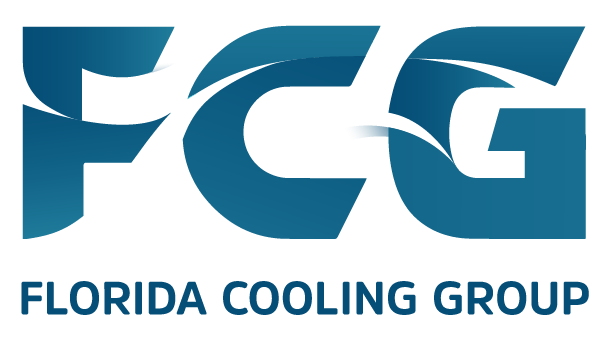
 (561) 400-2205
(561) 400-2205